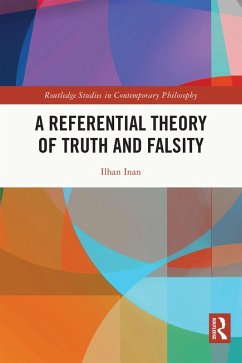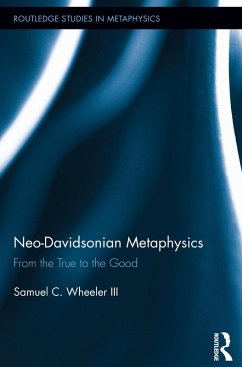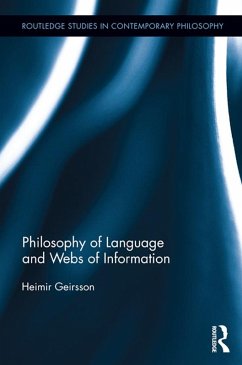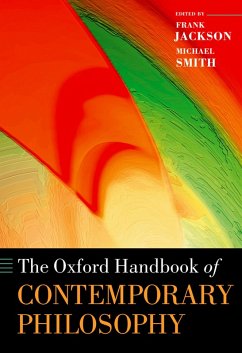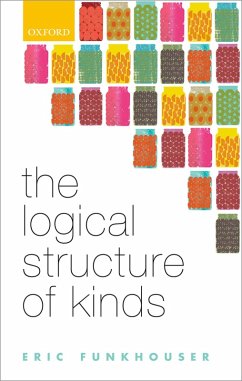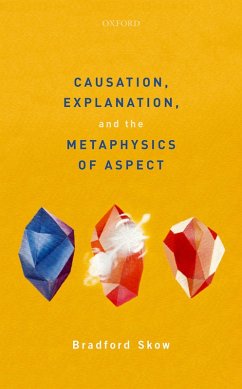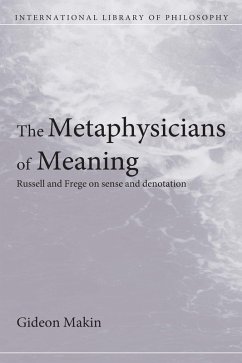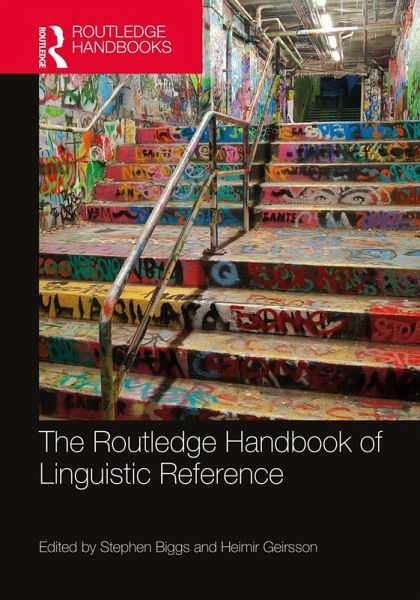
The Routledge Handbook of Linguistic Reference (eBook, PDF)
Versandkostenfrei!
Sofort per Download lieferbar
46,95 €
inkl. MwSt.
Weitere Ausgaben:

PAYBACK Punkte
23 °P sammeln!
This Handbook offers students and more advanced readers a valuable resource for understanding linguistic reference; the relation between an expression (word, phrase, sentence) and what that expression is about. The volume's forty-one original chapters, written by many of today's leading philosophers of language, are organized into ten parts: Early Descriptive Theories Causal Theories of Reference Causal Theories and Cognitive Significance Alternate Theories Two-Dimensional Semantics Natural Kind Terms and Rigidity The Empty Case Singular (De Re) Thoughts Indexicals Epistemology of Reference Co...
This Handbook offers students and more advanced readers a valuable resource for understanding linguistic reference; the relation between an expression (word, phrase, sentence) and what that expression is about. The volume's forty-one original chapters, written by many of today's leading philosophers of language, are organized into ten parts:
Contributions consider what kinds of expressions actually refer (names, general terms, indexicals, empty terms, sentences), what referring expressions refer to, what makes an expression refer to whatever it does, connections between meaning and reference, and how we know facts about reference. Many contributions also develop connections between linguistic reference and issues in metaphysics, epistemology, philosophy of mind, and philosophy of science.
- Early Descriptive Theories
- Causal Theories of Reference
- Causal Theories and Cognitive Significance
- Alternate Theories
- Two-Dimensional Semantics
- Natural Kind Terms and Rigidity
- The Empty Case
- Singular (De Re) Thoughts
- Indexicals
- Epistemology of Reference
Contributions consider what kinds of expressions actually refer (names, general terms, indexicals, empty terms, sentences), what referring expressions refer to, what makes an expression refer to whatever it does, connections between meaning and reference, and how we know facts about reference. Many contributions also develop connections between linguistic reference and issues in metaphysics, epistemology, philosophy of mind, and philosophy of science.
Dieser Download kann aus rechtlichen Gründen nur mit Rechnungsadresse in A, B, BG, CY, CZ, D, DK, EW, E, FIN, F, GR, HR, H, IRL, I, LT, L, LR, M, NL, PL, P, R, S, SLO, SK ausgeliefert werden.





